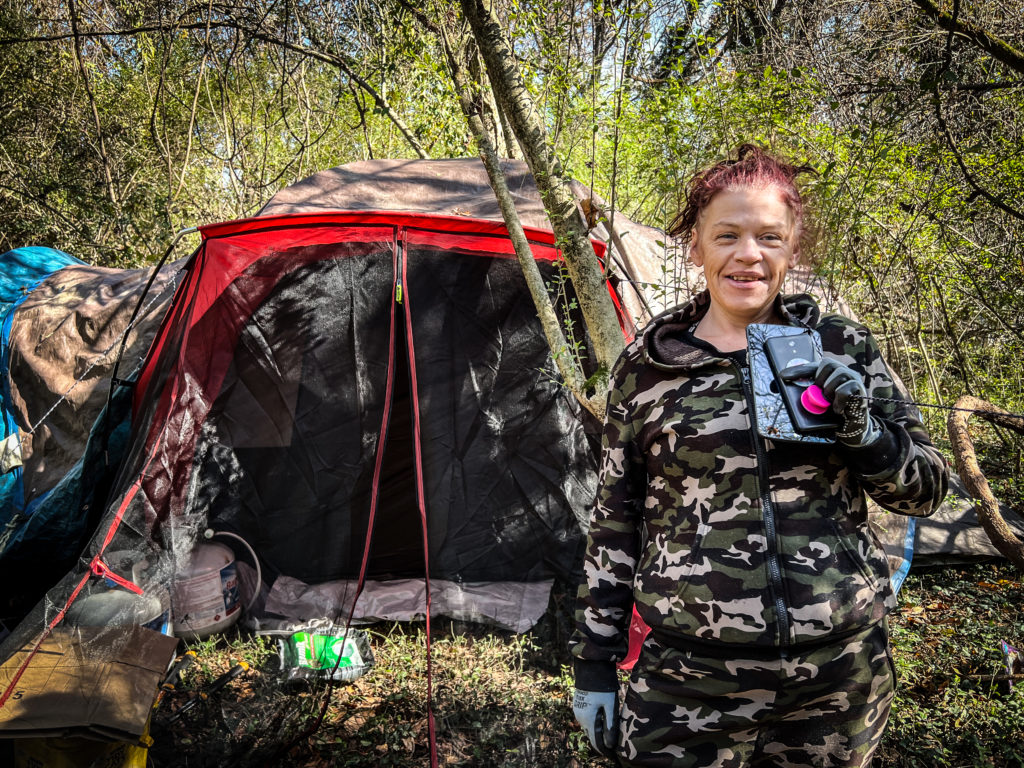
Rev. Lisa Cook is a second-career minister. When she worked in the corporate world, her relationship to homelessness wasn’t what it is now.
“I would have to walk from my building on Second Avenue down past Broadway,” she says, “and that was my first experience in realizing that … there were people outside and, you know, the only people outside [late at night] then … were the people who lived there.”
She says she was afraid of the people she saw sleeping on the streets. She never talked to them and they left each other alone. Now, she says, she’s making up for lost time.
There are well over 100 campsites in Davidson County where unhoused people live year-round. The sweltering heat of southern summers is one thing — we know that’s coming — but our winters can be dangerously challenging. Now, with Sacred Sparks Ministry, Rev. Cook supports people with low income — including Angie Basham who lives in a tent.

Rev. Lisa Cook delivers propane to a woman experiencing homelessness as temps drop.
“She is someone who will not go into shelters,” Cook says, “so she uses this propane with heaters to stay warm when it’s really cold outside.”
For Cook, a day dropping off fuel is really just like any other day. As a street chaplain, she provides essential food, resources and laundry service to folks living in extreme poverty. She says “all three of those are done under the umbrella of pastoral care and relationships, which is what this ministry is really founded on.”
At her campsite, Basham says the new, larger propane tank lasted at least three to four cold days, which is “way better than the little green ones.”
The main focus of Cook’s ministry is laundry, and Basham jumps at the chance to get everything clean before moving to a new tent. It’s red and brown and on a little bit of an incline which is going to help in the rain. This is something she’s learned in her years living outside, and she gives some advice for people, like her, who are trying to stay as warm as possible when the temperatures drop.
Basham says she takes flat bedsheets and safety pins them across the roof on the inside, “now it acts as insulation,” she says. “It’s because the roofs are netting, and then you got the canopy that goes over it. If you take the bedsheets and safety pin them, you got a barrier … and it blocks the air.”
“You got to adapt to your surroundings,” Basham says, and walks Cook back toward her van — telling her she loves her.


